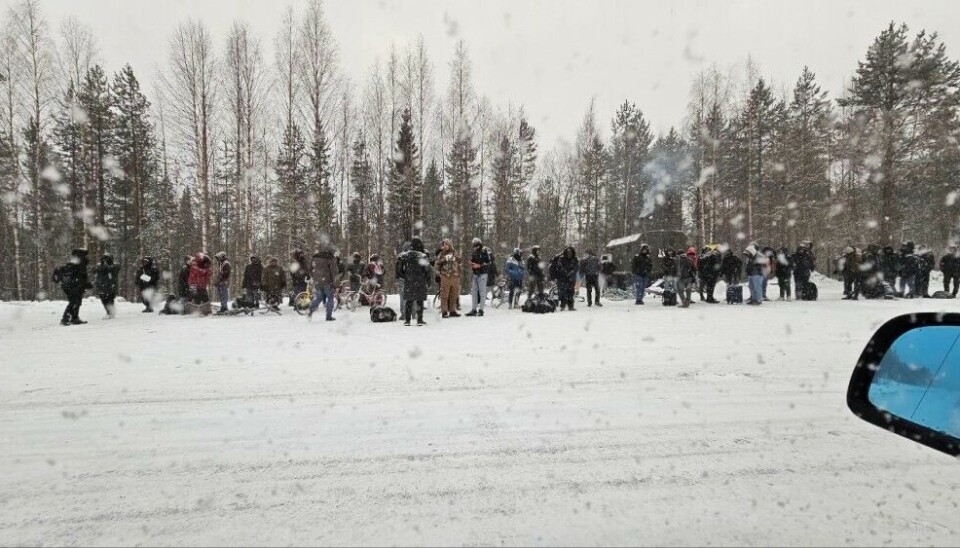
Karelian enlistment officers recruited illegal migrants to the war in Ukraine
People who ended up in a special detention center after an unsuccessful attempt to reach the Finnish border were offered to save themselves from deportation by signing a contract with the Russian Armed Forces.
Illegal migrants from southern countries were exempted from deportation to their homeland through a contract with the Armed Forces. To do this, enlistment officers asked the court to overturn the verdict, after which the migrants were sent to Ukraine.
This happened in at least two municipalities of Karelia – in Kostomuksha and Suojärvi district, the Barents Observer found. The journalist learned this from clerks in courts where deportation orders were issued and then overturned.
We received information from the military registration and enlistment office: they asked to stop the deportation proceedings,”
- an assistant of a Karelian judge said.
She explained that the military commissar (in this case, the district one) acted as a third party in the case, while the applicant was formally the migrant himself. BO does not know exactly how many deportation orders have been overturned. However, it is known that some of these decisions were subsequently appealed. Upon arrival, the new recruits refused to serve and terminated their contracts with the Armed Forces, while the migration authorities demanded that the deportation process be resumed in the Supreme Court of Karelia.
“During the process, while they were on their way there, they changed their mind and refused to go to the SVO (special military operation). Accordingly, the migration service filed an appeal against the decision to overturn the punishment,” the court employee said. “And the decision to deport has already entered into legal force, and they will be deported like everyone else.”
At least one such decision, to our knowledge, was not appealed; we can conclude that the recruited migrant remained to serve.
We also do not know the current whereabouts of the people who signed a contract with the Ministry of Defense but did not want to participate in the war.
Earlier, the BBC found that migrants who were subject to deportation were offered a choice: either deportation or “work in Russia.” However, it was not explained to them that “work” involved participation in the war.
The migration crisis hit the Russia-Finland border in the second half of November 2023. Russian border guards quit stopping third country nationals who didn’t have valid documents to enter Finland. Hundreds of migrants from Somalia, Syria, Iraq, Afghanistan, Yemen and other countries moved to checkpoints. This led to the Finnish authorities gradually closing all checkpoints on the border with Russia. Some migrants managed to move to the northern regions of Karelia and the Murmansk region. There they began to be detained and placed in special detention centers. Those who had an expired Russian visa were tried and subjected to administrative penalties — fines and deportation. In Karelia alone, according to the Ministry of Internal Affairs, more than 230 guests from Africa and the Middle East were detained.
Finnish authorities said at the beginning of the crisis that Russian authorities were helping migrants get to the Finnish border. There is a number of confirmations of this, but those migrants who The Barents Observer was able to to talk to deny assistance from Russian security forces.














